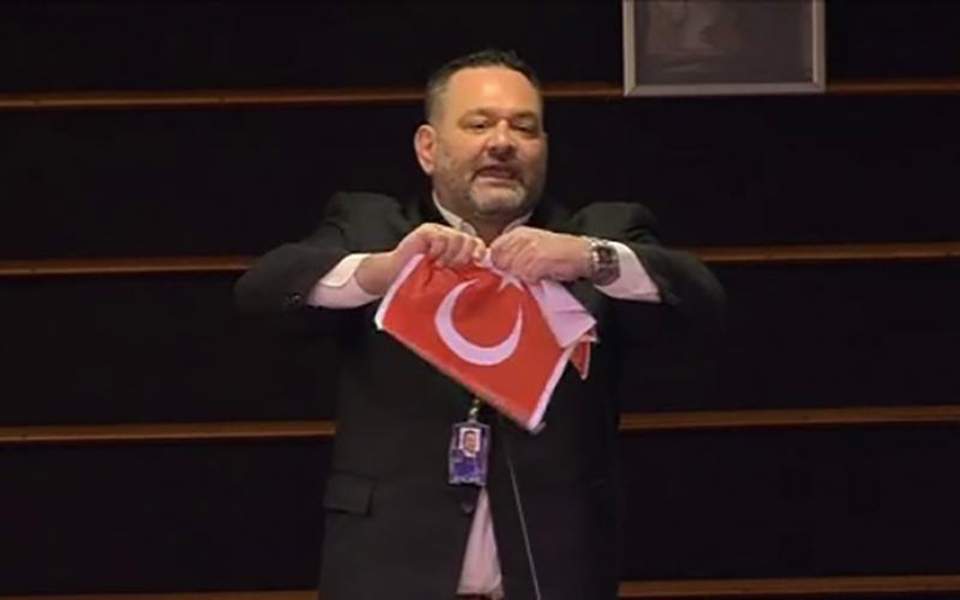With its Parliament adopting a resolution yesterday (March 11), Sweden became the 20th country to recognize the Armenian genocide allegations. The Swedish Government opposed the resolution. The Parliament’s Foreign Affairs Commission had submitted the resolution to the General Assembly with the view that it should not be adopted. However, the resolution was adopted with a one vote difference. It should immediately be noted that this resolution is not binding. In other words, it does not create any legal consequences for neither Turkey nor Sweden. Therefore, this resolution has no further effect other than merely reflecting the views of the members of parliament who have voted in favor of it. However, this resolution will further strengthen the existing belief, especially in Western countries, that the Armenians have been subjected to genocide in 1915. Even though the resolution has no consequence or effect, it can be seen that it entails much more extreme positions when compared to the resolutions adopted by other parliaments regarding this subject. First of all, it puts forth that not only Armenians, but also Assyrians, Syrians, Chaldeans and Pontus Romans have also been subjected to genocide in the Ottoman Empire. No other parliament has alleged that genocide has been inflicted upon these five ethnic groups. Secondly, in the resolution, it is requested from the Swedish Government to take initiatives in order to persuade Turkey in accepting the “genocide” conducted towards Armenians, Assyrians, Syrians, Chaldeans, and Pontus Romans. This provision has also not been put forth by any of the other parliaments. Last of all, in the resolution it is also required from the Swedish Government to take initiatives within the European Union and United Nations so that Turkey will accept that “genocide” has been inflicted upon the five ethnic groups. This is also a first. Minister of Swedish Foreign Affairs Carl Bildt has opposed the resolution, stating that historical events should not be judged at political level, but should be left to the relating parties to discuss it, while also saying that the resolution has been adopted despite the view of the Parliamentary Committee of Foreign Affairs and that it has failed to be adopted unanimously. This way, the Minister has wanted to convey that the resolution carries no great importance. Moreover, he has also emphasized that this resolution will not contribute positively to the ongoing process of normalizing relations between Turkey and Armenia. It can be said that the Swedish Government is not pleased with the resolution adopted by the Parliament with only one vote difference and although it has not been openly expressed, it can be seen that there is concern that the cooperation between Turkey and Sweden which has greatly developed in the recent years will be damaged. Turkey’s reaction to the resolution has been quick and strong. Prime Minister Erdoğan has cancelled his visit to Sweden which was to take place next week, and Turkey’s Ambassador to Stockholm Zergün Korutürk has been recalled to Ankara for consultations. However, since the Swedish Government is also against the resolution, it can be expected that relations between the two countries will soon turn back to normal again.
© 2009-2025 Center for Eurasian Studies (AVİM) All Rights Reserved
ARMENIAN GENOCIDE FILMS FAIL TO WIN ACCLAIM
 CALL FOR PAPERS: REVIEW OF ARMENIAN STUDIES (ISSUE #32)
CALL FOR PAPERS: REVIEW OF ARMENIAN STUDIES (ISSUE #32)
 OBSTACLES TO PEACE BETWEEN AZERBAIJAN AND ARMENIA
OBSTACLES TO PEACE BETWEEN AZERBAIJAN AND ARMENIA
 TIME FOR THE EUROPEAN PARLIAMENT TO DECIDE ON THE IMMUNITY OF NEO-NAZI GREEK MEP
TIME FOR THE EUROPEAN PARLIAMENT TO DECIDE ON THE IMMUNITY OF NEO-NAZI GREEK MEP
 A STATUE OF TERRORIST TEHLIRIAN IN MARSEILLE
A STATUE OF TERRORIST TEHLIRIAN IN MARSEILLE




























